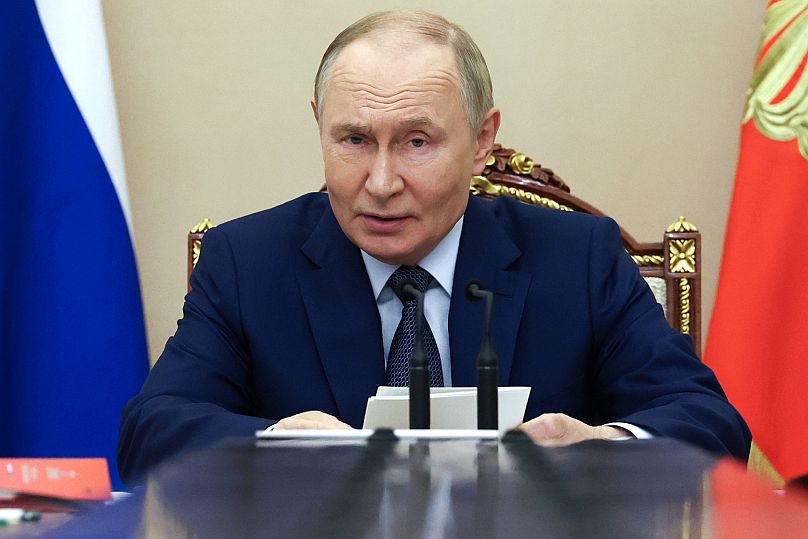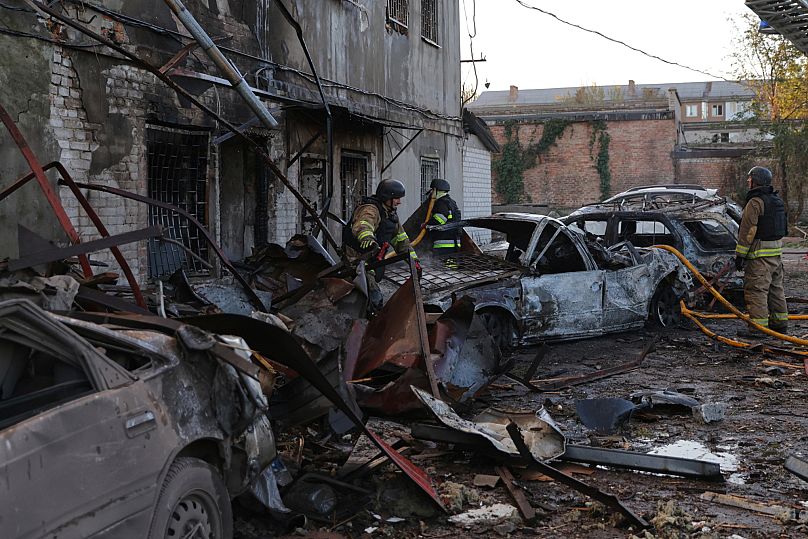The New START deal, signed by then-US and Russian presidents Barack Obama and Dmitry Medvedev, limits each country to no more than 1,550 deployed nuclear warheads and 700 deployed missiles and bombers.
Russia's President Vladimir Putin said on Monday that Moscow will adhere to nuclear arms limits for one more year after the last remaining nuclear pact with the United States expires in February.
Putin said that the termination of the New START agreement would have negative consequences for global stability.
Speaking at a meeting with members of Russia's Security Council, he said that Russia would expect the US to follow Moscow's example and also stick to the treaty's limits.
The New START, signed by then-US and Russian presidents, Barack Obama and Dmitry Medvedev, limits each country to no more than 1,550 deployed nuclear warheads and 700 deployed missiles and bombers.
Its looming expiration and the lack of dialogue on anchoring a successor deal have worried arms control advocates.
The agreement envisages sweeping on-site inspections to verify compliance, but they have been dormant since 2020.
In February 2023, Putin suspended Moscow’s participation in the treaty, saying Russia could not allow US inspections of its nuclear sites at a time when Washington and its NATO allies openly declared Moscow's defeat in Ukraine as their goal.
Moscow has emphasised, however, that it was not withdrawing from the pact altogether and would continue to respect the caps on nuclear weapons the treaty has set.
Prior to the suspension, Moscow claimed it wanted to maintain the treaty, despite what it called a "destructive" US approach to arms control.
Kremlin spokesperson Dmitry Peskov told reporters it was necessary to preserve at least some "hints" of continued dialogue with Washington, "no matter how sad the situation is at the present time."
"We consider the continuation of this treaty very important," he said, describing it as the only one that remained "at least hypothetically viable".
"Otherwise, we see that the United States has actually destroyed the legal framework" for arms control, he said.
Together, Russia and the United States account for about 90% of the world's nuclear warheads.
The future of New START has taken on added importance at a time when Russia's full-scale invasion of Ukraine has pushed the two countries closer to direct confrontation than at any time in the past 60 years.
In September last year, Putin announced a revision to Moscow's nuclear doctrine, declaring that a conventional attack by any non-nuclear nation with the support of a nuclear power would be seen as a joint attack on his country.
The threat, discussed at a meeting of Russia’s Security Council, was clearly aimed at discouraging the West from allowing Ukraine to strike Russia with longer-range weapons and seems to significantly reduce the threshold for potential use of Russia’s nuclear arsenal.
Putin did not specify whether the modified document envisages a nuclear response to such an attack.
However, he emphasised that Russia could use nuclear weapons in response to a conventional attack posing a "critical threat to our sovereignty," a vague formulation that leaves broad room for interpretation.













